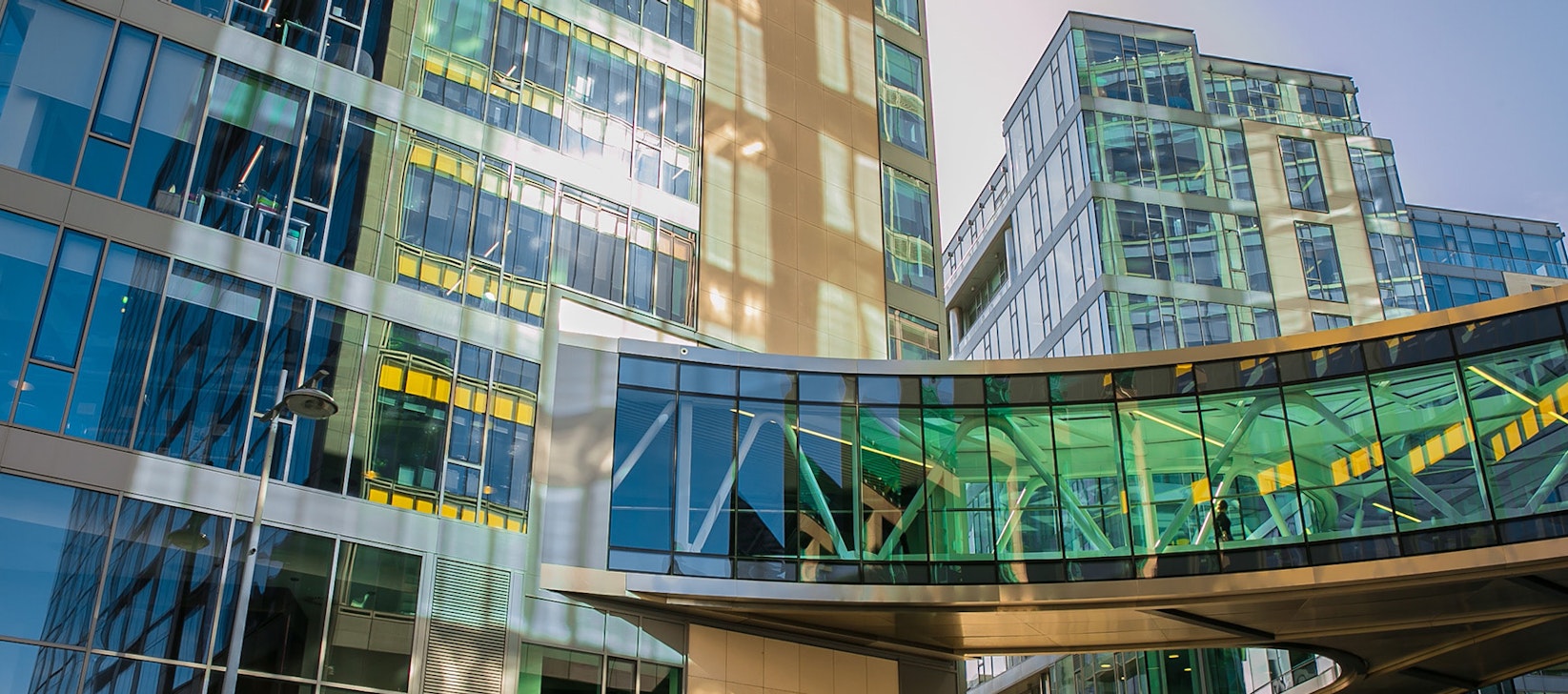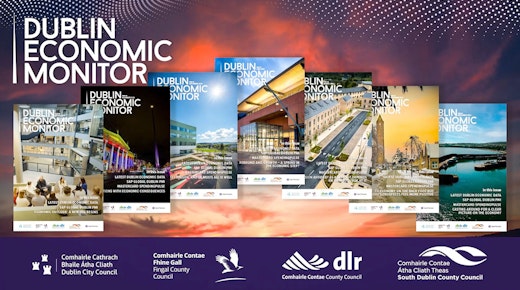Social distancing has impacted public transport and shared spaces leading to a reimagining of the use of road and footpath space.
Rising to the challenges of maintaining the essential services that underpin everyday life, and of supporting economic activity during this time of unprecedented uncertainty, has seen agile and innovative responses across local government.
These responses have involved not only technological innovations but changes to how services are organised and provided to the public.
Across the 4 Dublin Local Authorities, the majority of office-based staff have been working on a full or hybrid remote basis, facilitated by the rapid scaling-up of remote working capacity, and introducing new methods of managing customer contact.
Essential services, such as waste and traffic management, maintenance of parks and the public realm, and frontline fire and emergency services, have been organised in new ways that build the resilience of these services, while ensuring the safety of staff and the public.
Innovation has ensured that responses are specific but flexible enough to support citizens and businesses as we navigate through the various levels of the national response. Techniques such as rapid trialling, testing and learning, collaboration, and iteration have been widely adopted in designing responses to the unique demands created by the pandemic.
Rapid trialling of mobility interventions
Social distancing has impacted public transport and shared spaces leading to a reimagining of the use of road and footpath space.
Rapid and temporary mobility interventions have been implemented by the 4 Dublin Local Authorities, achieved by using bollards, planters and landscaping, temporary footpath build-outs, and quick-build protected cycle schemes.
In the City area, Dublin City Council’s Covid Mobility Programme provides the framework for implementing rapid trials to support shifts to walking and cycling. Trials are time-bound, reversible solutions, with in-built review mechanisms, data gathering and environmental monitoring tools to help measure impact.
Repurposing street spaces
To enable the City Region to return to work, street spaces are being repurposed. Many businesses will continue to need additional external space to operate and accommodate outdoor dining, queuing, or to facilitate ‘click and collect’ services.
Innovations such as ‘parklets’ in Dublin City, Fingal and South Dublin enable the temporary repurposing of parking bays as outdoor seating areas. Small, independently run food businesses can avail of a Street Furniture Grant Scheme from Dun Laoghaire-Rathdown County Council.
Flexible and pragmatic approaches have been taken to the statutory system of street furniture licencing, with all 4 local authorities granting temporary licences and waiving the usual fees.
Collaboration with business
Collaboration with the business, retail and hospitality sectors, has seen joint solutions for managing reopening and promoting local economic activity.
The ‘Fingal In It Together’ campaign, a joint initiative of Fingal County Council, the Fingal, Balbriggan and Malahide Chambers of Commerce, and Shop Malahide, uses a Charter to bind businesses together in support of one another, to encourage people to shop local, and to encourage co-operation and support as business adapts to social distancing requirements.
South Dublin County Council has targeted its ongoing sustainable business programme in conjunction with the South Dublin Chamber to deal with Covid related issues.
The ‘Reopening the City’ initiative of Dublin City Council, DublinTown, the NTA and An Garda Síochana focused on the gradual and safe reopening of the City and agreement on on-street queuing protocols, staggered and extended opening hours for retail, and the provision of support services.
Innovation in technology
Innovative approaches have also been applied to statutory services which facilitate economic activity and typically require in-person interaction. This has led to greater adoption of technology and highlighted the potential for its more widespread, and longer-term application.
This has led to greater adoption of technology and has highlighted the potential for its more widespread, and longer-term application.
South Dublin County Council has introduced remote inspections of waste facilities utilising a combination of drones, smart phones and video conferencing, enabling inspections to continue uninterrupted throughout the pandemic.
New technology has also been applied to the statutory planning process which guides the Region’s spatial and economic growth. With face-to-face consultation not feasible, local authorities are finding new ways to engage stakeholders. Dun Laoghaire-Rathdown County Council and South Dublin County Council have developed Virtual Reality Consultation Rooms to facilitate statutory public consultation with 2-way engagement and accessible information readily available.
Digital first approaches
Aligned to the greater adoption of technology is the ‘digital first’ approach taken to the roll-out of Covid-specific supports for business. The new Restart and Restart Plus grants, which assist small business with reopening and reemployment costs, were implemented as fully digital services in each of the 4 Dublin Local Authorities, enabling speedy and efficient processing of over €185m in grant-aid during 2020.
Local Enterprise Offices (LEOs) across the Region demonstrated their agility by adapting their operating model and pivoting their full offering online early in the Covid-19 response. The LEOs refocused their range of services, emphasising the Trading Online and Business Continuity Voucher Schemes to better match the current needs of small businesses.
These examples demonstrate just some of the new approaches and new thinking that have emerged through designing and delivering responsive public services in the midst of uncertainty. This strengthened innovation capability is a positive, and hopefully lasting, outcome of the pandemic, that will be used as local government continues to develop and lead on solutions to future City challenges.





